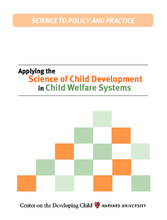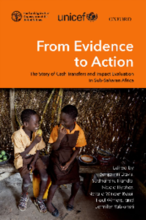Displaying 191 - 200 of 460
Extracting on chronologic data, this book discusses the politics and practice of intercountry adoption starting with the state international adoption to in the 1950s continuing to present-day adoption practice and protections.
This article explores the implications of austerity for professional child and family social workers in the UK.
This article discusses the results of a cross-country research project in Sub-Saharan Africa regarding the impact of social protection on loss of parental care, support to foster or kinship care and quality of care and wellbeing in Sub-Saharan Africa.
In this Innocenti Podcast, Tia Palermo discusses The Transfer Project, a government run large-scale social cash transfer program in Sub-Saharan Africa.
The Africa’s Agenda for Children, to be adopted by the Committee, presents measurable goals and priority areas to which the African Union and its Member States commit themselves for the coming 25 years.
This desk review provides a brief mapping and summary of existing knowledge on alternative care and deinstitutionalisation in Africa.
This study underscores the fact that visible minority families receiving child protective services are a far from homogeneous group and that there are a number of effective methods that can be used with them.
This article examines how urban Congolese refugees in Kenya promote psychosocial well-being in the context of structural vulnerability.
This paper explores the ways that developmental science can inform and strengthen the child welfare system to better support the children, families, and communities it serves.
This book published jointly by FAO, UNICEF, and Oxford University Press presents the findings from evaluations of the Transfer Project, a cash transfer project undertaken in the following sub-Saharan African countries: Ethiopia, Ghana, Kenya, Lesotho, Malawi, South Africa, Zambia, and Zimbabwe. It concludes that cash transfers are becoming a key means for social protection in developing countries.





